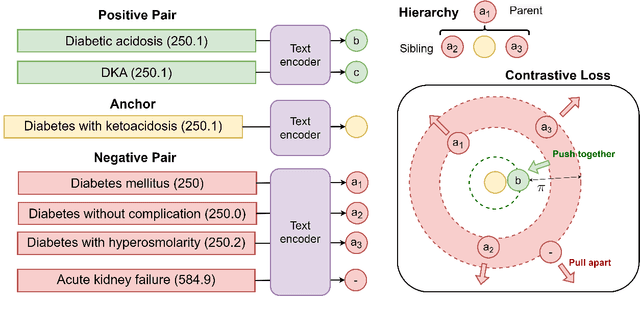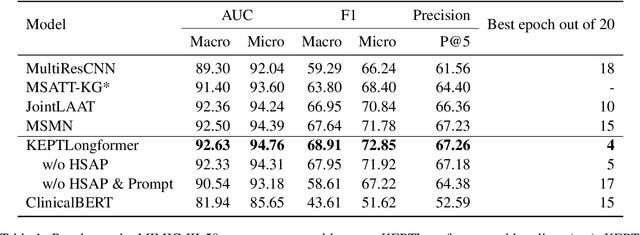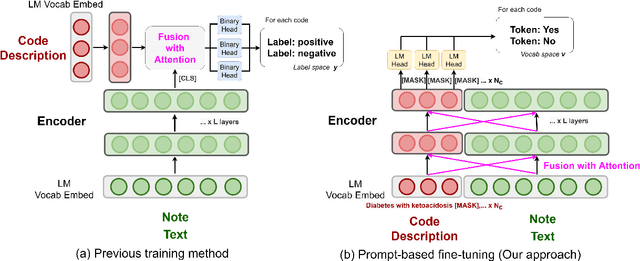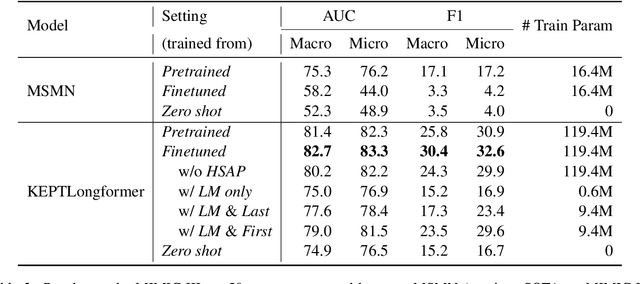Knowledge Injected Prompt Based Fine-tuning for Multi-label Few-shot ICD Coding
Paper and Code
Oct 07, 2022



Automatic International Classification of Diseases (ICD) coding aims to assign multiple ICD codes to a medical note with average length of 3,000+ tokens. This task is challenging due to a high-dimensional space of multi-label assignment (tens of thousands of ICD codes) and the long-tail challenge: only a few codes (common diseases) are frequently assigned while most codes (rare diseases) are infrequently assigned. This study addresses the long-tail challenge by adapting a prompt-based fine-tuning technique with label semantics, which has been shown to be effective under few-shot setting. To further enhance the performance in medical domain, we propose a knowledge-enhanced longformer by injecting three domain-specific knowledge: hierarchy, synonym, and abbreviation with additional pretraining using contrastive learning. Experiments on MIMIC-III-full, a benchmark dataset of code assignment, show that our proposed method outperforms previous state-of-the-art method in 14.5% in marco F1 (from 10.3 to 11.8, P<0.001). To further test our model on few-shot setting, we created a new rare diseases coding dataset, MIMIC-III-rare50, on which our model improves marco F1 from 17.1 to 30.4 and micro F1 from 17.2 to 32.6 compared to previous method.
 Add to Chrome
Add to Chrome Add to Firefox
Add to Firefox Add to Edge
Add to Edge